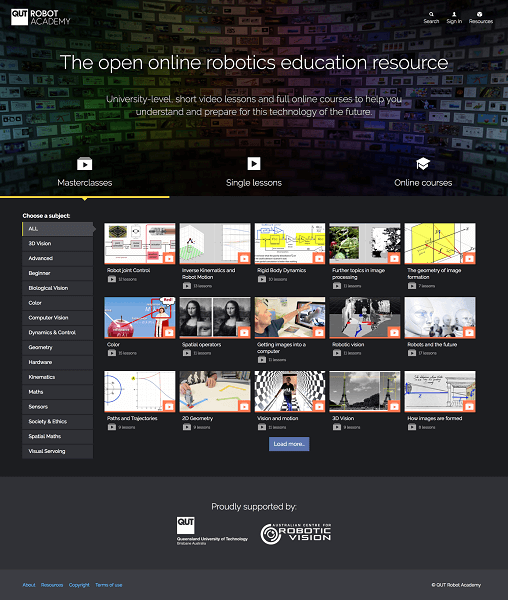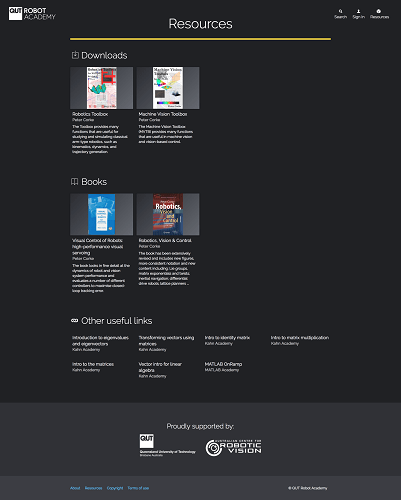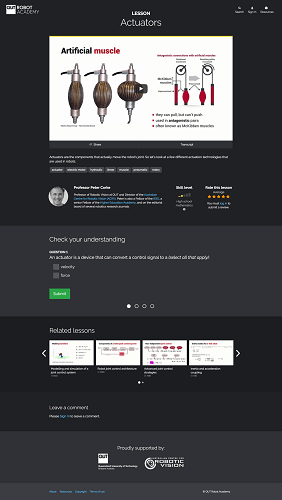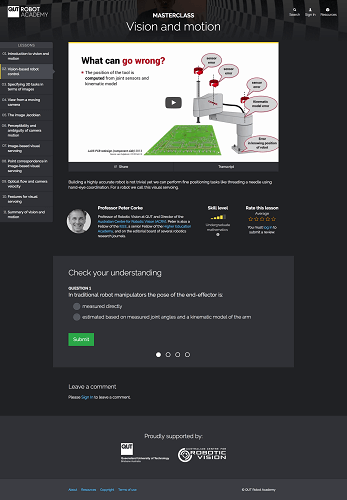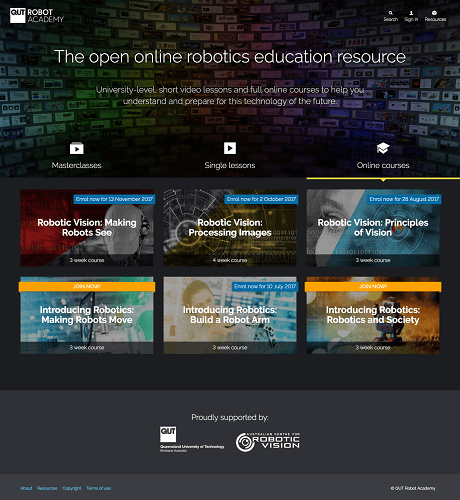USING MLEARNING TO ENGAGE WITH THE LIVING BOTANICAL WORLD
NOTE FROM THE EDITOR
Robotics advances will be a major driver for global job creation and offer unprecedented opportunities for positive impact in a world where robots are moving beyond industry to become integral to daily lives.
Professor Peter Corke and a team of media and education professionals from the Queensland University of Technology (QUT), have built upon the 2015 Reimagine Education Award-winning “Introduction to Robotics and Robotic Vision” MOOC courses to create the innovative QUT Robot Academy.
Launched in May 2017, the QUT Robot Academy helps achieve Professor Corke’s vision: to teach robotics to the world!
“The QUT Robot Academy aims to empower learners by providing ready access to the learning resources that will enable them to be active participants in the robotics revolution and to exploit the opportunities it presents,” said Professor Corke.
“The QUT Robot Academy offers students and teachers free and immediate access to over 200 high quality teaching episodes based on the MOOCs. However, unlike a MOOC, all lessons and resources are available 24/7,” he added.
Another distinctive feature is that the MOOC content can be accessed as single lessons – over 200 videos, each less than 10 minutes, or as a masterclass – a collection of videos, around one hour in duration.
Educators across the globe are encouraged to use the QUT Robot Academy content to support their face-to-face teaching and learning, or use the content for flipped learning tasks.
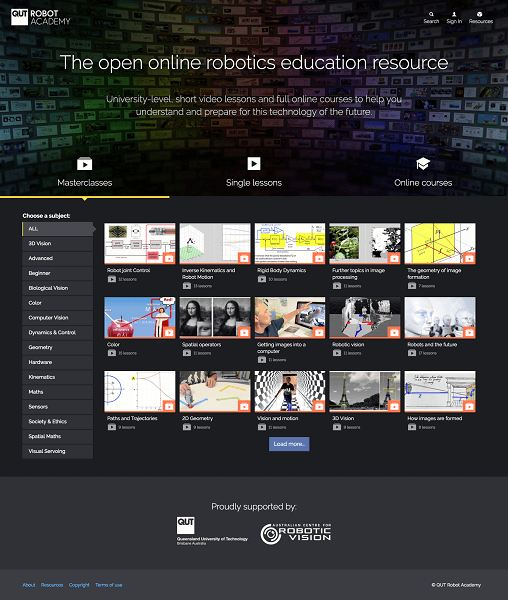
Students can use the online interface to search for single lessons on a specific topic, or select a subject and watch a masterclass for in-depth learning. They also have the option of directly accessing QUT’s six short format MOOCs on the FutureLearn platform and participating as a learner in a global cohort.
An additional valuable resource is the inclusion of two downloadable open-source software toolboxes for the MATLAB language: the Robotics Toolbox and Machine Vision Toolbox.
“The Toolboxes offer quality documentation and well written software with explanatory comments to teach users how the robot and vision algorithms work, and model how to write high quality code in the MATLAB programming language common in industry and universities,” said Professor Corke.
In keeping with Professor Corke’s vision, the QUT Robot Academy is accessible to all. While it is targeted at undergraduate-level users, around 20% of the lessons require no more than general knowledge. Each lesson indicates what level of prior knowledge is required.
Early indicators support the value of the Robot Academy, which has had over 16,000 views and nearly 3,000 unique visitors since its launch.
“In our next steps, I envisage the QUT Robot Academy will incorporate software, hardware designs, electronic circuits, and a curated wiki to share communal knowledge. I see it becoming a community discussion hub and a marketplace of providers of robotic components. Over time the Robot Academy aspires to create e-books, new online courses, open source software and support outreach projects like one robot per child, to inspire young people wherever they live in the world,” said Professor Corke.
Transformative teaching requires agility and institutional support to enable educational opportunities for learners with differing needs on a global scale. Professor Peter Corke and his team have taken his passion for robots from undergraduate courses, to MOOCs, and now to bite-size chunks of learning. The QUT Robot Academy is a significant step toward transforming robotics education, and making it accessible to a broad and diverse range of learners.
Screenshots taken from QUT Robot Academy (https://robotacademy.net.au/).


